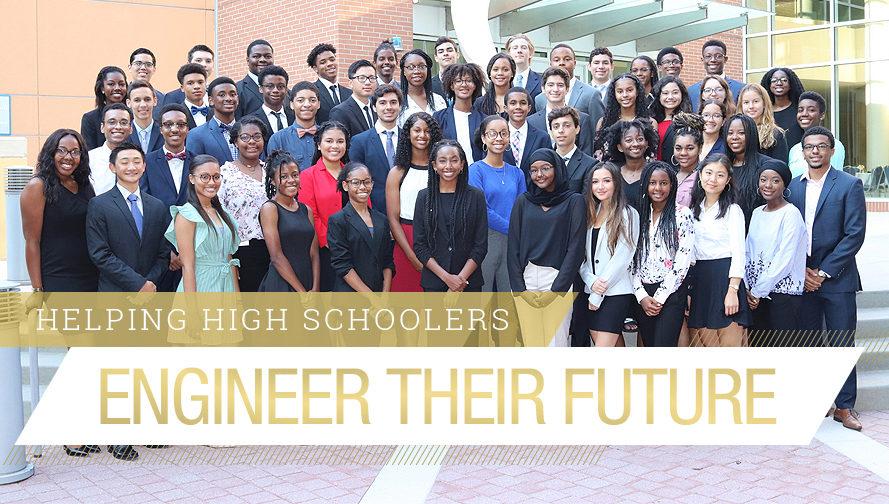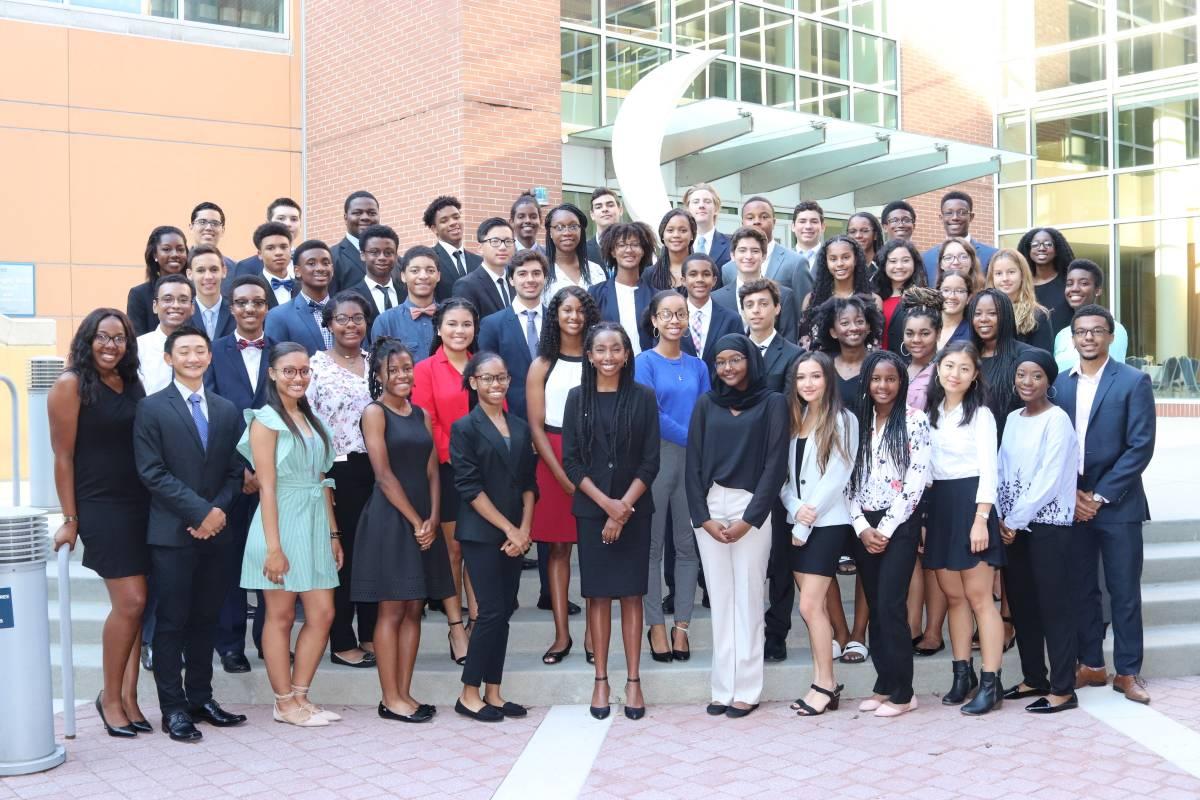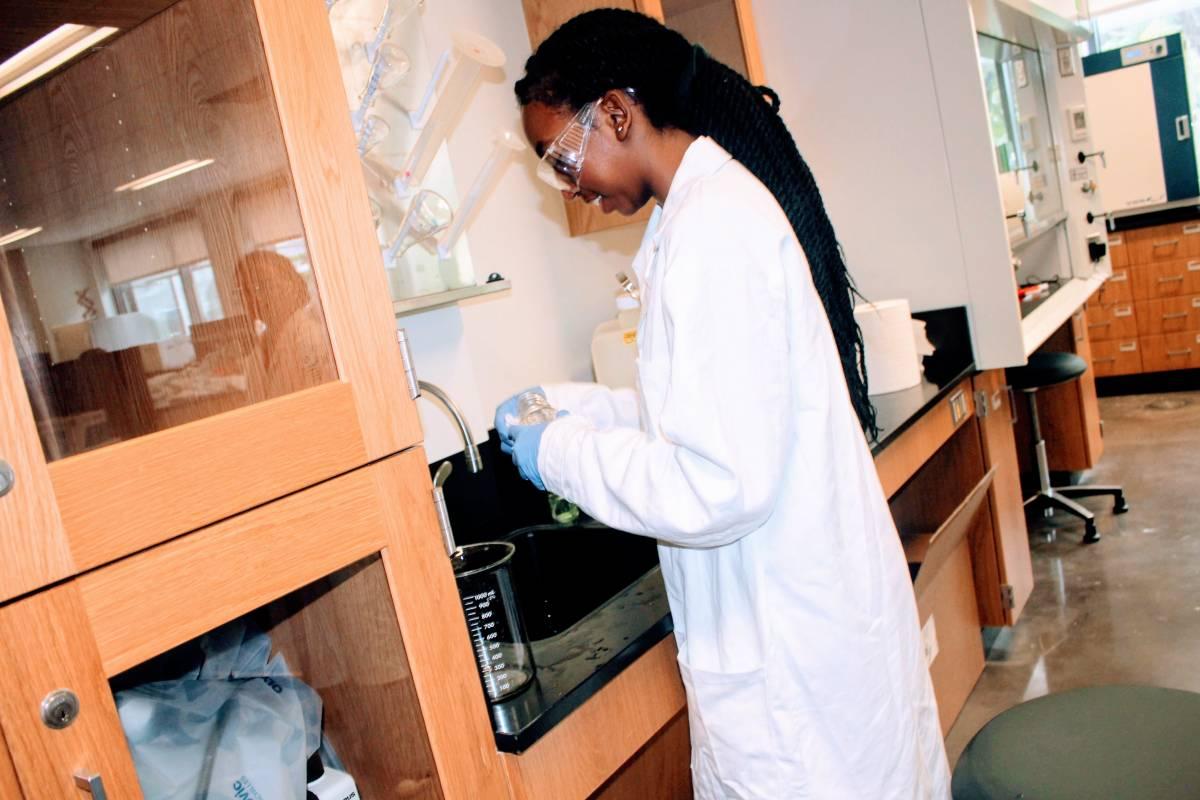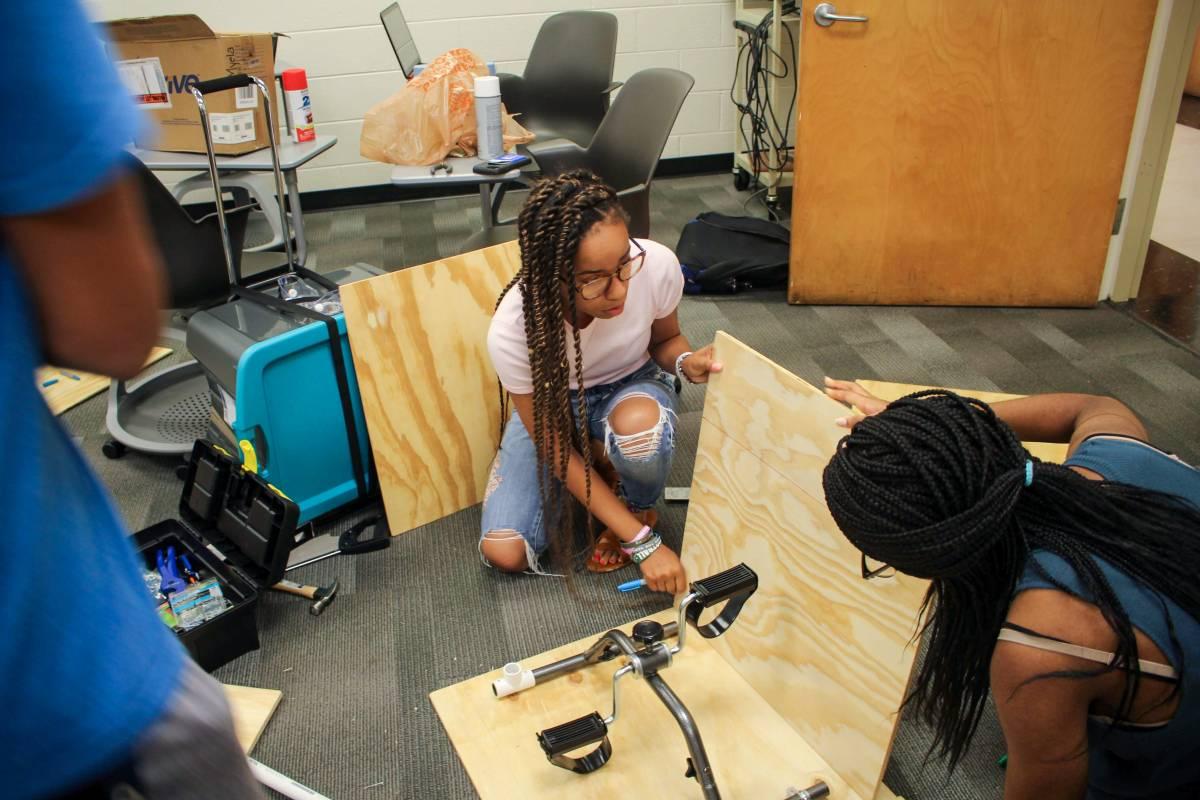Summer Engineering Institute Gives High School Students a Taste of Engineering

Four high schoolers trekked around campus, visiting restaurants and dining halls. But instead of eating, they collected oil and grease from stovetops and cooking appliances. A bizarre quest, with an ambitious goal: The team was determined to try to produce biodiesel fuel from cooking oil.
These students were participants in the Summer Engineering Institute (SEI), an annual program for high school students that introduces them to life as an engineer. The 48 students that participate in the program every year spend three weeks living and breathing engineering. From staying in freshman residence halls to collaborating with industry to solving real-world problems, the immersive experience often has a huge impact on students.
“I always say to the parents: 'When your student comes home, they're gonna be a little bit different than they were when they left,’” said Jacqueline Cox, program and operations manager at the Center for Engineering Education and Diversity, which hosts SEI. “A lot of them feel a little more self-assured, and they know they can work hard. We’re trying to help them engineer their future.”

The Program
Once they’re on campus, students are divided into teams of four and introduced to the project they will be tackling for the next three weeks. Projects cover a wide range of topics, like aerial surveillance, water filtration, robotics or another challenge that engineers face.
Students sit in lectures, getting a true college experience, and are taught the skills they need to understand and solve the problem they have been assigned. Then, they’re let loose. Students are free to design and conduct their own experiments, pursue their own research, and find their own solutions. They then build a prototype of their solution and present it on stage at an event at the end of the camp. Whatever they come up with has to be usable and applicable in both Atlanta and in an underdeveloped country.
But even more vital than the skills they learn is the ability to get along with and work with people from different backgrounds. The program is targeted mainly towards underrepresented minorities, but all rising eleventh or twelfth graders can apply.
“Some of them are quite wealthy, some of them are in a socio-economic situation that is not so privileged. But you come and see that all of them are smart,” said Juan Manuel Restrepo Flores, a fifth-year chemical engineering Ph.D. candidate and one of the teachers of the program. “In my opinion, that gives you the opportunity to realize that people of different backgrounds are quite talented. It's a way to kill prejudice against others, which is so often popular.”
Students get to meet high-ranking Georgia Tech staff and faculty like Dean Steve McLaughlin of the College of Engineering or Director of Admissions Rick Clark – a unique experience for the young students considering college. Staff also give presentations going over what it’s like to apply to college, or what kinds of financial aid are available. Through all of these opportunities, Cox and other organizers of the program hope that students will have a better understanding of engineering and be a little bit closer to knowing if they want to pursue engineering someday.

The Students
Jackie Escalera, a rising high school senior from Valdosta, arrived at Georgia Tech in the summer of 2017 somewhat unsure of what an engineer does. She didn’t know what to expect over the next three weeks. Very quickly, she discovered that an engineer can mean many things.
She realized that with engineering, she could combine her interest in business with her love of math. With engineering, her horizons weren’t limited.
During her time at SEI, Escalera got the chance to do a lot of hands-on lab testing in order to find a solution to the problem she was presented with. Her team’s goal was to use plant-based, natural products to manufacture a substitute for ethanol. They spent hours in the lab extracting sugar, a natural form of ethanol, from soybean plants and investigating how close they could get their compound to being a replacement.
The people she worked with on her project and other peers she interacted with throughout the program had the biggest impact on her.
“I feel like it really made me more ambitious, because it consisted of a project between group members,” said Escalera. “I gained teamwork and communication skills.”
SEI features a rigorous academic program, one that taught her how to work hard and how to effectively solve a problem in a team. It wasn’t all work and no play, though – on weekends and evenings, students experienced life in Atlanta and explored campus.
SEI was only the beginning of her journey. Escalera was able to take her newfound confidence and skills back to Valdosta for her last few years of high school. She interned with a civil engineer, who taught her even more deeply what it was like to be a professional engineer.
Just over a year after she was on campus as a high schooler participating in SEI, Escalera has returned to campus as a freshman studying industrial engineering. Escalera is the junior secretary for the Society of Hispanic Professional Engineers and active in her campus community. She maintains that SEI had a key role in getting her to where she is now.

The Teachers
In a program like SEI, there are a lot of moving parts. For students to experience what it’s like to be an engineering student, professors are an essential part of the picture. This is where current Tech graduate students come in – they serve as the “professors,” teaching the skills needed to be successful in creating solutions.
One of these teachers is Restrepo Flores. His work is in the area of gas separations and the materials that aid this process. A few years ago, he got an email about SEI and thought it was a great opportunity to exercise his love of teaching.
“Research is cool, but it is work that has an impact in the long run,” Restrepo Flores said. “Teaching, on the other hand, has an immediate impact. When you have a good teacher, a good professor, that has a lasting effect on you. I do my best to have a positive impact on those students who end up working with me.”
But teaching comes with its own unique challenges. Since the program includes students from all over the country, each student has a unique level of understanding in math, chemistry, physics and other topics. Restrepo Flores’ job is to get them all to the same baseline level of knowledge so that each student is equipped with what they need to know to complete their project. In his eyes, while the foundational concepts are essential, it is even more important to familiarize the students with the hands-on aspects of engineering.
“In the end, one of my goals is not only that they can produce these products, which are cool, but also that they get familiar with the scientific method,” he said. “They need to understand the planning of experiments, analysis of results and frustration that comes when the results don't work out.”
In the last four years he has worked with SEI, he has guided students through the process of creating alternative fuels with sustainable materials. Some students used cooking oil, and others used corn or other agricultural materials. Every idea was different, speaking to the students’ diverse perspectives.
By the end of the program, every group has come up with a unique idea that solves a problem. Restrepo Flores rests easy, knowing that he has done his job to make sure these future engineers have the skills and knowledge needed to go on to do big things in college and beyond.
Cox’s musings are often right: students return home for their last few years of high school a little different than they were when they left. It might be because of deeper knowledge, stronger motivation or just the independence that comes from being away from home for a few weeks. Whatever it is, they finish the Summer Engineering Institute with a better idea of what engineering is and what it feels like to do it.
Applications for the Summer Engineering Institute open in January and close in early April. Visit sei.gatech.edu for more information and to apply.